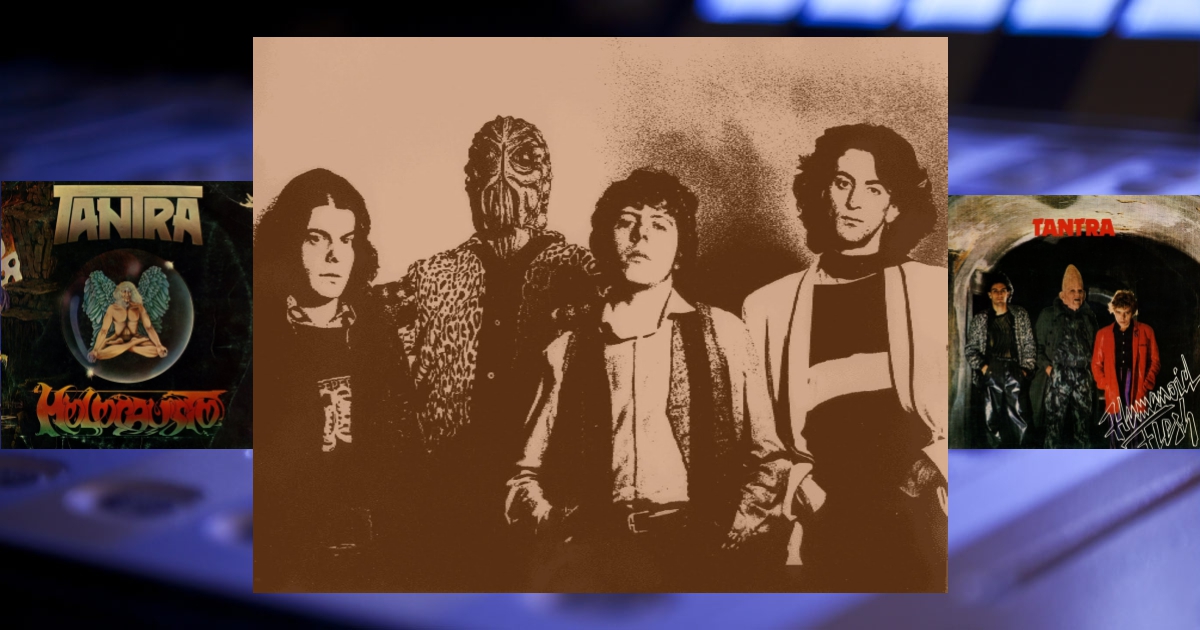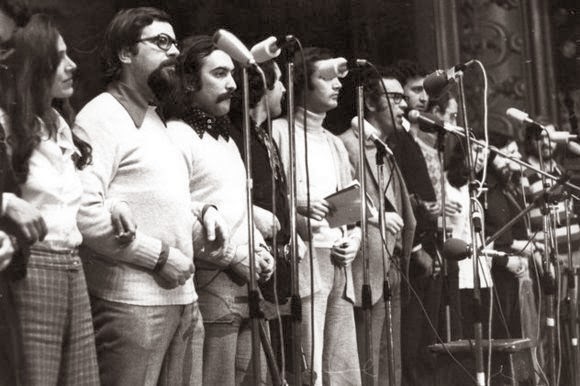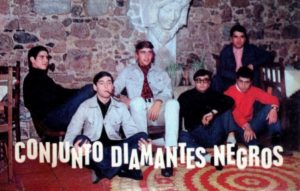Tantra began their activity in 1976, when Manuel Cardoso and Armando Gama joined forces to form a duo. Manuel Cardoso (guitarist) had previously been part of another well-known group at the time, the Beatnicks, during a period when the lead vocalist was Lena D’Água. Later, this initial core was joined by Américo Luís (bass), Rui Rosas (drums), and Firmino (percussion). With this lineup, they recorded a single, “Novos Tempos”, which established the group as one of the first Portuguese bands to follow the progressive rock trend popular at the time with bands like Yes and Genesis.
The band made their live debut alongside the Beatnicks, and after Rosas and Firmino left, a new drummer, ToZé Almeida (future Heróis do Mar), joined. He was known for frequently playing in counter-time on an enormous drum kit. With this new lineup, the group recorded their first LP in 1977, titled “Mistérios e Maravilhas”, now considered, even internationally, a “classic” of progressive rock.
Unlike what was happening in England, where progressive rock was in decline, Tantra drew large crowds in Portugal, filling venues such as the Coliseu dos Recreios in Lisbon—something unprecedented for a rock group. Tony Moura (formerly of Psico) joined the band to strengthen the vocals, and the group began rehearsing the first steps of a show with strong theatrical elements. Manuel Cardoso started wearing an old man’s mask during the song “À Beira do Fim” in live performances—a gesture that would become a trademark of the project.
Armando Gama left, and Pedro Mestre took his place, later replaced by Pedro Luís (future member of Da Vinci). In 1978, Tantra released “Holocausto”, a more mature album in which the vocals began to stand out more. They embarked on another national tour and continued to enjoy success, but the band’s musical direction shifted. Manuel Cardoso embraced the new musical trends emerging from England and began moving toward the new wave style. Portuguese, previously used in the group’s songs, gave way to English.
The new album, titled “Humanoid Flesh”, turned out to be a commercial failure. Américo Luís no longer participated, having been replaced on bass by Dedos Tubarão (aka Pedro Ayres Magalhães, later a member of Faíscas, Corpo Diplomático, Heróis do Mar, and Madredeus). Criticized by the press and ignored by the public, Tantra ended their career in 1981, without honour or glory.
The project was revived in 2003, during a nostalgic phase, when the band self-released a series of CDs, one of which was a live recording from 1977. The band was composed of Manuel Cardoso (vocals and guitar), Armando Gama (piano and keyboards), António José de Almeida (drums), and Américo Luís (bass)—the same lineup that had recorded the acclaimed “Mistérios e Maravilhas”.











A banda Tantra formou-se em 1976 com Manuel Cardoso e Armando Gama, juntando depois Américo Luís, Rui Rosas e Firmino;… Read more »